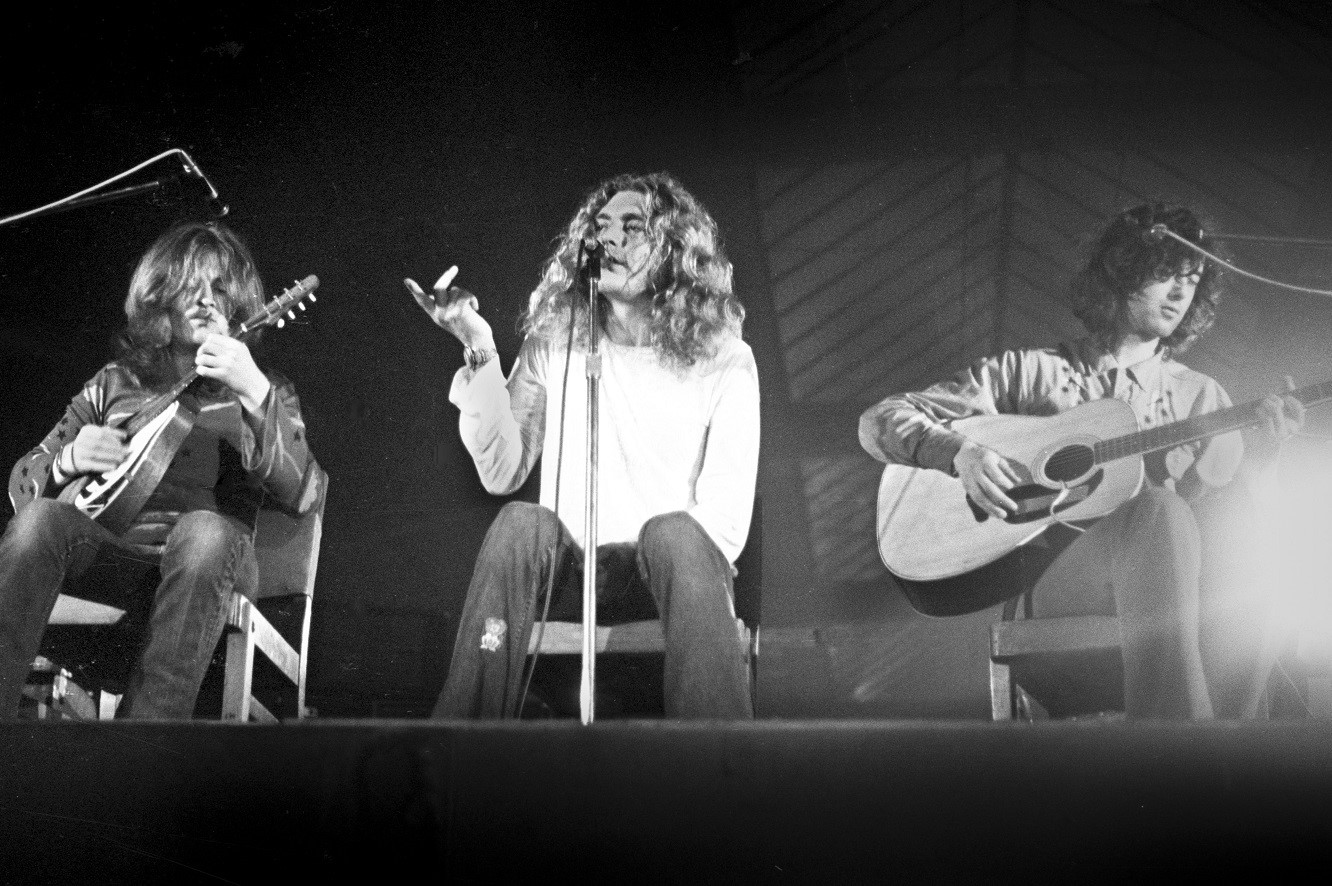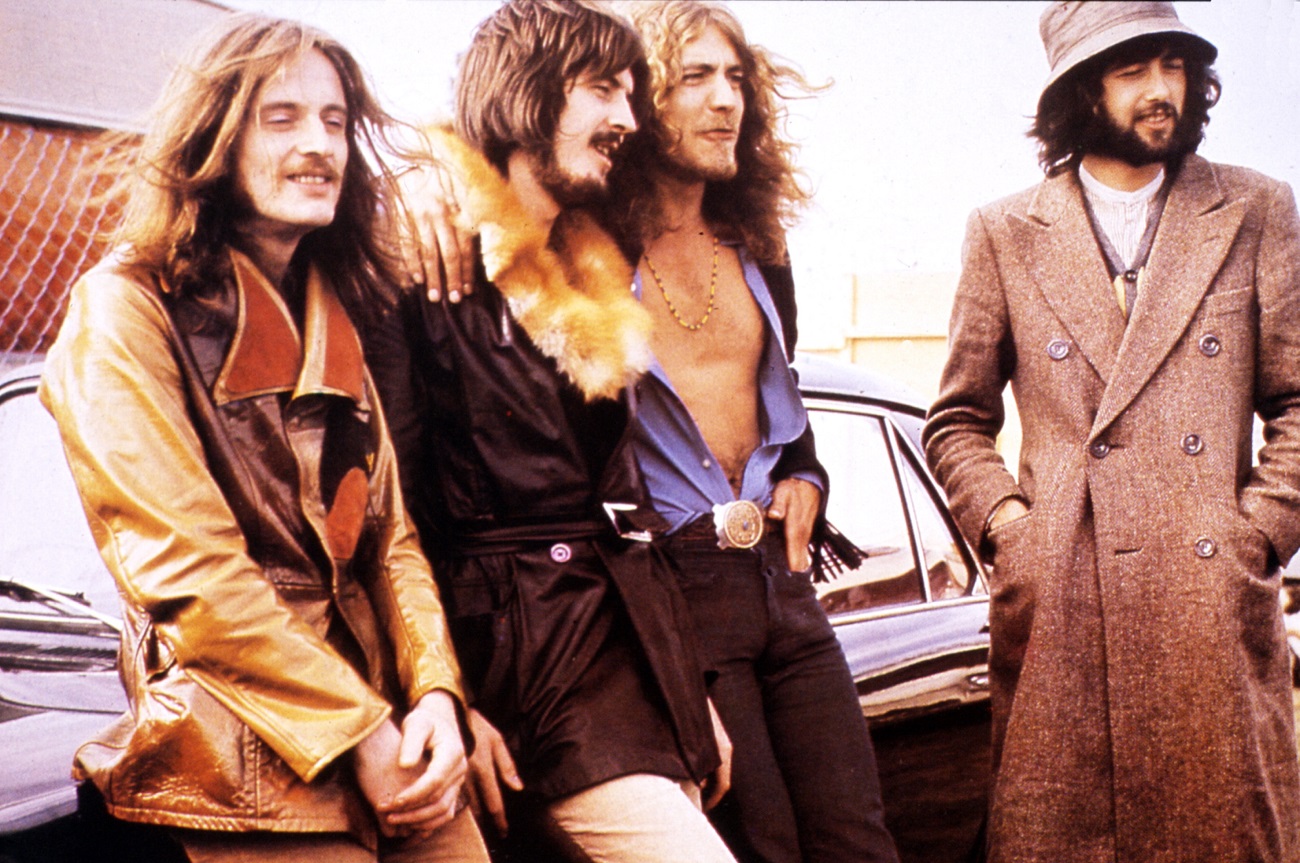Why Led Zeppelin Bristled at the ‘Heavy Metal’ Label From the Start
Led Zeppelin first got hit with the “heavy metal” label after the release of its second LP (Led Zeppelin II, 1969). That the Zep had offered up a mix of folk and hard rock light and shade on its first two albums didn’t particularly matter. Critics who wanted to pigeonhole Zeppelin as strictly a “Lemon Song” and “Whole Lotta Love” act had the ammunition for that.
By the early ’70s, Robert Plant and his bandmates were already tiring of the heavy metal tag. They believed (rightly) that tracks like “Babe I’m Gonna Leave You” and “What Is and What Should Never Be” were more than their pulverizing choruses. After Led Zeppelin III (1970), critics had to cover their ears to pretend Zep exclusively played metal.
What critics termed ‘heavy metal’ was only 1 aspect of Led Zeppelin’s sound

Even with “Thank You” and “Ramble On” on Led Zeppelin II, critics considered the LP the birth of metal. (Many still do.) And after III, some wondered if the Zep would pick a lane (i.e., hard or soft). Speaking with Rock Magazine after sessions for IV (1971), Plant reached for words to describe the tracks that weren’t “Going to California” or “Stairway to Heaven.”
“There’s some nice strong stuff, some really … we don’t say ‘heavy,’ do we?” Plant said (via Led Zeppelin on Led Zeppelin). The reporter said sure, why not. Plant wouldn’t commit, though. “Well, I don’t know whether we do [say ‘heavy’],” he said. “But it’s strong stuff, and it’s exciting.”
Following the release of that blockbuster fourth LP, the Zep program became clear. They’d play their unique version of blues; pound the speakers with hard rock; sing folk songs over acoustic instruments; and above all blend heavy and light music. “Stairway to Heaven” more or less did all of the above in a single track.
‘Led Zeppelin III’ sounds like a statement of intent
While calling Led Zeppelin II “metal” isn’t quite accurate, it’s also a mistake to consider Led Zeppelin III “the acoustic album.” Sure, side 2 features all acoustic instruments, but let’s not forget the sledgehammer that is “The Immigrant Song” opening the album. Meanwhile, “Celebration Day” and side 1 closer “Out on the Tiles” are quite heavy themselves.
Then there was “Friends,” the haunting, Eastern-tinged track that followed “Immigrant Song.” Featuring a string arrangement, Moog synthesizer, and Jimmy Page’s excellent acoustic guitar work, you might call “Friends” the most Zeppelin song of them all (at least in retrospect). But strictly metal (or acoustic)? Absolutely not.
Robert Plant and Jimmy Page continued swatting away the metal label in later decades

Though the Zep dissolved in ’80 and the band members went their separate ways, you’d still hear them (especially Plant and Page) defending the old group from charges of metal. According to an ’18 Led Zeppelin News item, Page reportedly declined to appear on Eddie Trunk’s That Metal Show in ’15 simply because of the program’s name.
As for Plant, the singer-songwriter’s fine solo career ought to clear up any metal suspicions fans and critics cooked up over the years. In an ’88 interview with Q Magazine, Plant shuddered at the thought of even influencing the metal genre. And he did so pointing to a Judas Priest poster.
“If I’m responsible for this in any way, then I am really, really embarrassed,” Plant told Q. “Hard rock, heavy metal these days is just saying ‘Come and buy me. I’m in league with the Devil — but only in this picture because after that I’m going to be quite nice, and one day I’m going to grow up and be the manager of a pop group.'”


